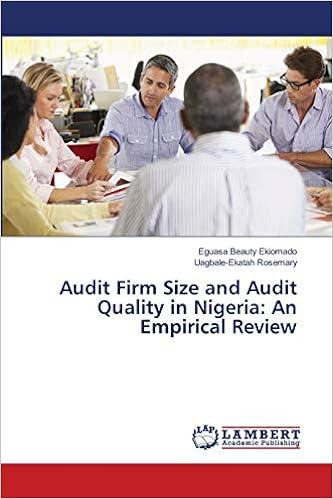Question
Lab 2 Activity: Exponent Application, Financial Relevance When is comes to your personal finances the trade-off reality becomes a daily choice. Trade-off is technically considered
Lab 2 Activity: Exponent Application, Financial Relevance When is comes to your personal finances the trade-off reality becomes a daily choice. Trade-off is technically considered as opportunity cost, or what you give up or sacrifice by making a choice intended for future gain. For example, would you rather have $100 today or $106 dollars a year from now? Your choice might be influenced by current needs, future uncertainty, and current interest and inflation rates. Another example of personal opportunity cost might be to walk to work for an extended period of time so that you can save money to buy a nicer vehicle in the future. Future Value is defined as the amount to which current values will increase based on a certain interest rate and a certain time calculation period, which is referred to as compounding. For example, a value of $100 will have a future value of $105 in one year if the $100 is invested at a rate of 5% for 1 year. The calculation is computed as: Future Value= 100 + (100 x 0.05 x 1year) Recall that simple interest calculation uses the formula: Interest = (principal)(rate)(time), where time is measured in years. Present Value is defined as the current value for a future amount based on a particular interest rate for a certain period of time. Present value computations, also called discounting, allow you to determine how much to deposit now to obtain a desired total in the future. The general formula relating future value(FV) and present value(PV) is: FV=PV(1+i)n where the interest rate(i) is written in decimal form and n is the number of time periods. Provide responses to the following. 1) What are 2 examples of personal opportunity costs?(can be general examples) 2) What does time value of money measure? Use the above formula to calculate the following. 3) The future value of $100 at 7% in 10 years. 4) The present value of $500 received in 8 years with an interest rate of 8%. 5) If you deposit $1,000 at 5% at age 40, how much money will you have at age 65?(future value) 6) If you deposit $1,000 at 5% at age 20, how much money would you have at age 65?
Step by Step Solution
There are 3 Steps involved in it
Step: 1

Get Instant Access to Expert-Tailored Solutions
See step-by-step solutions with expert insights and AI powered tools for academic success
Step: 2

Step: 3

Ace Your Homework with AI
Get the answers you need in no time with our AI-driven, step-by-step assistance
Get Started


